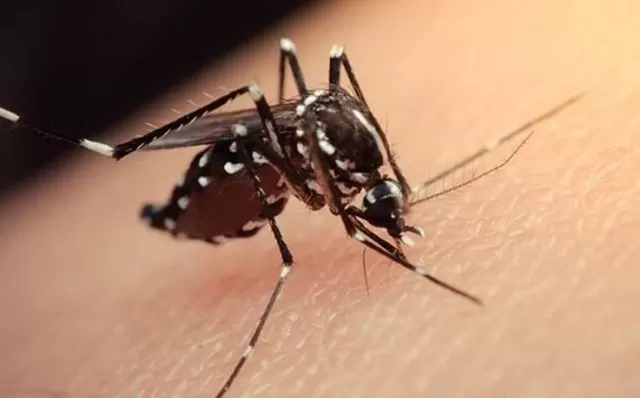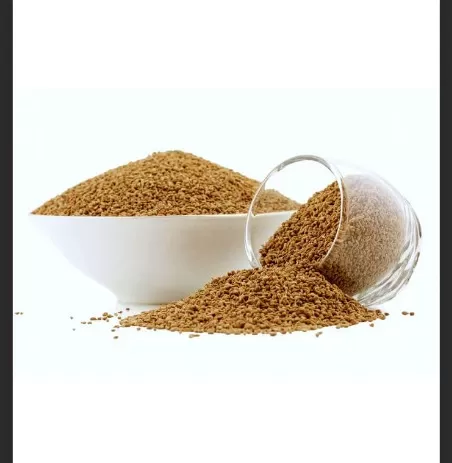Eco-Friendly Pest-Control for a Healthy Home Landscape. Embrace eco-friendly approaches to ensure a pest-free and enjoyable living space.
Say goodbye to pesky mosquitoes, slugs, and other unwelcome visitors with these green-minded methods that prioritize the well-being of both your home and the environment.By adopting these green-minded methods, you can create a pest-free environment that is safe for your family, pets, and the ecosystem. Embrace nature’s solutions to keep insects and vermin away while maintaining harmony with the environment.
Embrace the Outdoors: Mastering Bug Season with Nature’s Solutions for a Blissful Summer

As the delightful warmth of spring and summer fills the air, so does the presence of various insects and pests that share our environment.
Embracing nature means accepting the company of critters and crawlies in our yards and even within our homes. While some of these creatures can be bothersome, resorting to chemical pesticides isn’t the only solution.
Instead, we can explore natural methods to peacefully coexist with these creatures while safeguarding our gardens and Outdoor Spaces for a truly enjoyable summer.
This comprehensive guide offers ingenious ways to deter pests without compromising the harmony of the ecosystem.
Learn how to discourage stinging and biting insects, prevent the spread of diseases they might carry, and protect your precious garden plants from being devoured by voracious bugs. By implementing these natural strategies, you’ll breeze through bug season with ease, allowing you to revel in the beauty of nature without any worries.
From time-tested herbal remedies to clever garden designs that repel pests, this resource has got you covered.
Discover the secret behind creating a bug-resistant sanctuary that not only ensures your safety but also preserves the vitality of the environment. Say goodbye to the annoyance of pests flying in your face during outdoor activities, and welcome a summer filled with joy, relaxation, and unforgettable moments amidst the splendor of nature.
Let nature be your ally in this bug season, as we delve into a world of eco-friendly solutions that harmonize with the delicate balance of life on our planet.
So, embark on this insect-friendly journey and make the most of your summer, savoring every moment without the need for harmful chemicals or drastic measures. Get ready to reclaim your outdoor spaces and enjoy the wonders of the natural world, bug season and all!.
Defend Your Garden: Effective Strategies to Ward Off Cicadas
While cicadas are generally harmless, their presence can be a bit of a downer for some people.
If you find the idea of dealing with these bugs unappealing, fear not! There are simple and humane ways to keep cicadas at bay and protect your beloved garden from any potential damage they may cause.
Gentle Showers: Rather than resorting to drastic measures, such as chemical pesticides, a garden hose can become your trusty ally.
If you spot cicadas congregating on trees, give them a gentle wash with your hose. This method allows you to peacefully redirect them away from areas where they might cause inconvenience.
Safeguard Your Seedlings: Young saplings and delicate seedlings can be vulnerable to the weight of a cicada onslaught.
To ensure their safe growth, consider using mesh or cheesecloth as protective barriers. These materials act as a shield against any potential harm caused by the cicada’s presence, allowing your young plants to thrive undisturbed.
Embrace Natural Predators: Nature often has its way of maintaining balance.
Encourage the presence of natural cicada predators, such as birds or certain insects, in your garden. These predators can help control the cicada population naturally, without causing harm to the environment.
Utilize Repellents: Some natural repellents can be employed to deter cicadas from settling in your garden.
For example, certain scents like citrus or peppermint are known to be unappealing to cicadas. Placing these scents strategically around your garden may discourage them from staying too long.
Timing is Key: Understanding the cicada life cycle can be advantageous.
Cicadas tend to emerge periodically, and their peak activity may last for several weeks. Knowing when they are likely to appear in your area can help you prepare in advance and take preventive measures.
Remember, cicadas play an essential role in the ecosystem, and it’s always best to approach their presence with a sense of appreciation for the natural world.
By implementing these gentle and environmentally-friendly strategies, you can ensure that both your garden and these fascinating creatures coexist harmoniously. So, embrace your gardening prowess and keep cicadas at bay with ease!.
Harness the Power of Blooms: Using Flowers to Repel Insects

Transform your garden into a formidable defense against pesky insects like mosquitoes, flies, aphids, and moths with the enchanting beauty of flowers.
Embrace the natural approach to combat bugs by strategically planting petunias, marigolds, geraniums, and chrysanthemums, turning your outdoor space into a vibrant and insect-repelling sanctuary.
Petunias: These lovely, trumpet-shaped flowers not only add a splash of color to your garden but also act as an effective deterrent against common pests.
Their fragrance is known to repel various insects, helping to keep your outdoor gatherings free from bothersome intruders.
Marigolds: With their bright and cheerful appearance, marigolds serve a dual purpose in your garden.
Not only do they add a pop of orange and yellow hues, but they also emit a distinct aroma that acts as a natural insect repellent. Planting marigolds around the perimeter of your garden can help create a bug-free barrier.
Geraniums: Delight in the beauty and elegance of geraniums while benefiting from their bug-fighting abilities.
These charming flowers release a fragrance that repels mosquitoes, making them a fantastic addition to outdoor seating areas where you want to enjoy a bite-free experience.
Chrysanthemums: Known for their wide range of colors and intricate petal patterns, chrysanthemums possess a powerful secret weapon against insects.
The compound pyrethrin found in chrysanthemums is A Key ingredient in many commercial insect repellents. By planting these flowers, you can tap into their natural insect-repelling properties.
Incorporating these flowering defenders into your garden not only adds aesthetic appeal but also contributes to an eco-friendly way of managing pests.
By relying on nature’s solutions, you can reduce the need for chemical pesticides, fostering a healthier and more balanced ecosystem.
So, let your garden come alive with the beauty and fragrance of these bug-fighting blooms.
Embrace the power of nature’s insect repellents and relish in the tranquility of a bug-free outdoor haven. As you revel in the company of these stunning flowers, you’ll find that a vibrant garden can indeed be your ally in the fight against unwanted insects.
.
.
.
Harness Nature\’s Aromas: Repel Pests with a Herb-Infused Garden
Turn your garden into a delightful haven of culinary delights while simultaneously deterring pesky pests with a vibrant array of herbs.
These aromatic wonders not only offer you fresh seasonings for your favorite dishes but also act as natural repellents against unwanted insects. Embrace the versatility of peppermint, basil, sage, rosemary, lavender, chives, mint, or dill, and enjoy a bug-free outdoor experience like never before.
Peppermint: Known for its invigorating scent and refreshing taste, peppermint is a powerhouse when it comes to warding off insects.
Plant it directly in the ground or consider keeping it in pots, as it has a tendency to spread vigorously. The added benefit of peppermint is that it can also deter rodents, making it a valuable addition to your garden.
Basil: This classic culinary herb not only enhances the flavor of your dishes but also repels flies and mosquitoes with its aromatic oils.
Plant basil in various locations around your garden to create a protective barrier against airborne pests.
Sage: With its earthy fragrance, sage is an excellent companion to have in your garden.
It effectively keeps mosquitoes at bay, allowing you to enjoy your outdoor spaces without constant buzzing interruptions.
Rosemary: This woody herb emits a delightful scent that repels moths and flies.
Its versatility makes it ideal for planting in pots, garden beds, or even window boxes near entrances to help keep bugs from entering your home.
Lavender: Besides adding a touch of elegance to your garden, lavender is a natural insect repellent that deters moths, fleas, and mosquitoes.
Its calming aroma will also contribute to a more relaxing and serene atmosphere in your outdoor oasis.
Chives: While chives add a mild onion flavor to your culinary creations, they also act as a deterrent for aphids and other insect pests that might wreak havoc on your plants.
Mint: Mint’s refreshing aroma is a favorite for many, but it’s also an effective way to keep flies and mosquitoes at bay.
Be cautious about planting mint directly in the ground, as it has a tendency to spread aggressively. Opt for containers to keep it contained.
Dill: This herb not only complements a wide range of dishes but also repels harmful pests like aphids and spider mites.
Plant dill near susceptible plants to offer them extra protection.
By strategically placing these aromatic herbs throughout your garden, you’ll create a natural insect defense system that allows you to savor the outdoors without the annoyance of bugs.
Revel in the beauty of your herb-infused haven and indulge in the flavors of freshly picked seasonings, all while appreciating the power of nature’s pest repellents.
Nature\’s Own Insecticide: Harnessing the Power of Oil to Eliminate Garden Pests

When faced with a garden infested by bothersome insects like aphids, mites, and thrips, you don’t need to resort to harsh chemical pesticides.
Instead, embrace the efficacy of oils as natural insecticides, offering a gentle yet effective solution to oust these unwanted garden gobblers.
Vegetable Oil Spray: Create a simple yet potent insecticide spray by combining 1 cup of vegetable oil, 1 tablespoon of mild soap, and 1 quart of water in a spray bottle.
Give it a good shake to disperse the ingredients evenly and then mist the mixture onto the foliage. The oil will suffocate the insects, effectively eliminating their presence without causing harm to your plants or the environment.
neem oil Formula: Neem oil, derived from the neem tree, offers an alternative solution that disrupts insects’ hormones, dissuading them from feasting on your plants.
Create a neem oil spray by mixing the oil with water according to the manufacturer’s instructions, and then apply it to the affected foliage. Neem oil not only repels pests but also serves as a fungicide, making it a valuable addition to your natural pest control arsenal.
By opting for oil-based insecticides, you can protect your garden and the delicate balance of the ecosystem.
These solutions provide an eco-friendly way to address pest issues without resorting to harmful chemicals. Remember, moderation is key when using any type of pesticide, even natural ones, to ensure that you maintain a healthy and thriving garden.
So, bid farewell to unwanted insects with the power of oils, and embrace a garden that flourishes in harmony with nature, free from the invasion of garden pests.
*The information is for reference only.